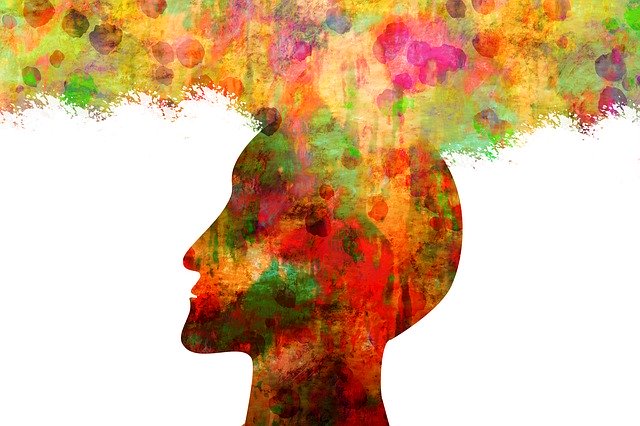Scientists Have Found That Clutter Can Have These Six Surprising Effects on Your Brain

Scientists Have Found That Clutter Can Have These Six Surprising Effects on Your Brain
In partnership with eBay
It turns out that when you walk into a room to find your toddler has pulled out every toy they could get their hands on, or your tweenager’s bedroom carpet has disappeared beneath a sea of clothing and other debris, there is a scientific reason why you feel overwhelmed and stressed. In fact, it seems that living in a home or working in an environment with too much ‘stuff ‘in it could have a bigger impact on your life than you realise.
“Clutter is an overabundance of possessions that collectively create chaotic and disorderly living spaces,’ explains Joseph Ferrari, a professor of psychology at DePaul University in Chicago who studies the causes of clutter and its impact on emotional wellbeing.
We’ve gathered together the findings from multiple studies on the effects that clutter has on your brain, and we think some of their findings might surprise you! You’ll certainly think twice about skipping the spring cleaning this year.
Clutter Can Affect Your Working Memory
Our brains like order. Being surrounded by clutter is a constant visual reminder of disorganisation which literally drain our cognitive resources and limits our ability to focus.
In 2011, neuroscience researchers used fMRI (functional magnetic resonance imaging) and other physiological measurements and found that clearing clutter from the home and work environment resulted in a better ability to focus and process information. Functioning in an uncluttered environment also allowed subjects to be more productive.
“By purging unneeded items from our home,’ explains licensed clinical professional counsellor Joyce Marter, “it is like deleting files to create disk space on your computer. Suddenly, the whole operating system is more efficient…this decreases stress and increases effectiveness personally and professionally.”
Clutter Can Negatively Affect Your Eating Habits
That’s right! Researchers have found that clutter is linked to poor eating habits!
One study found that participants in an untidy, disorganised environment ate twice as many cookies as participants in an organised kitchen environment. Another study found that being in a messy room made you twice as likely to eat a chocolate bar than an apple!
Clutter Can Cause Sleep Issues
Researchers have found that the effects of clutter aren’t only felt during our waking hours either. A study by Pamela Thacher, assistant professor at St. Lawrence University in Canton, N.Y, found that “people who sleep in a cluttered rooms… are more likely to have sleep problems. This includes having trouble falling asleep at night and experiencing rest disturbances.”
Clutter May Affect Our Relationships
Now here’s one that you wouldn’t never have guessed! A 2016 study found that background clutter made participants less able to correctly identify the emotional expressions on the faces of characters in a movie. Weird, huh?
Related articles:
- Why You Should Dig Out Your Old Smartphones and Sell Them on eBay
- The Courier Company That’s More Convenient and Cheaper to use Than Parcel Post
- How Improving Your Photographs Can Increase How Much You Make from your eBay Listing

Clutter Can Trigger a Stress Response
Researchers are discovering that a cluttered home can be a stressful home. A 2009 study at the UCLA’s Center on Everyday Lives of Families (CELF) found that the levels of the stress hormone cortisol here higher in mothers whose home environment was cluttered. Living in a constant low-grade state of flight-or-fight has other implications for our health too. High levels of cortisol in or systems over a long period of time can trigger physical and phychological changes that affect how our immune system functions and how we digest food, as well as putting us at a higher risk of type 2 diabetes and heart disease.
Dr Rick Hanson, author of Hardwiring Happiness and TEDTalk speaker, also explains how cortisol can also result in actual structural changes to our brains. Being stressed on a daily basis changes your brain so that it is even more sensitive to stress.
“Cortisol goes into the brain and stimulates the alarm centre, the amygdala. And kills neurons in the hippocampus which, besides doing visual/spatial memory, also calms down the amygdala and calms down stress altogether. So, this mental experience of stress, especially if it is chronic and severe, gradually changes the structure of the brain. So, we become aggressively sensitive to stress. The mind changes the brain changes the mind.’
It is interesting to note that in the 2009 UCLA’s study, men did not exhibit the same increase in cortisol levels, presumably because they did not experience the same level of stress caused by the things in their home. Other studies have also supported the findings that if men don’t think the responsibility of keeping the house tidy is relevant to them, they are less inclined to notice the clutter and therefore don’t become stressed about it in the same way that their partners do.

Clutter Can Have a Negative Impact on Your Child’s Behaviour
If clutter can have negative effects on our adult brains, its easy to see that our children may also be feeling the effects on a disorganised and messy environment.
“Clutter causes confusion, accidents, paralyses children from making decisions” explains professional organiser Lisa Krohn,” and creates anger and temper tantrums. Clutter is too hard to process. They can’t see the forest through the trees.”
Very interesting!
Related articles:
So, there you have it! Not only are your overabundance of unused possessions taking up room in your home, they may also be having some fairly significant and negative impacts on your mental and physical health. So, stop putting it off for another day. Get your family involved in clearing the clutter and make your home a calming space where you can all feel more relaxed, restored and rejuvenated. And let’s not forget, there is also financial gain to me made from clearing the clutter. You may be very surprised about how much money you could earn from selling your preloved items on eBay. You might be able to plan that family holiday after all!
Related articles:
- Declutter Your Families Wardrobe and Turn Your Preloved Clothing into Extra Cash
- 14 Surprising Things You Didn’t Realise You Could Make Money from Selling on eBay










